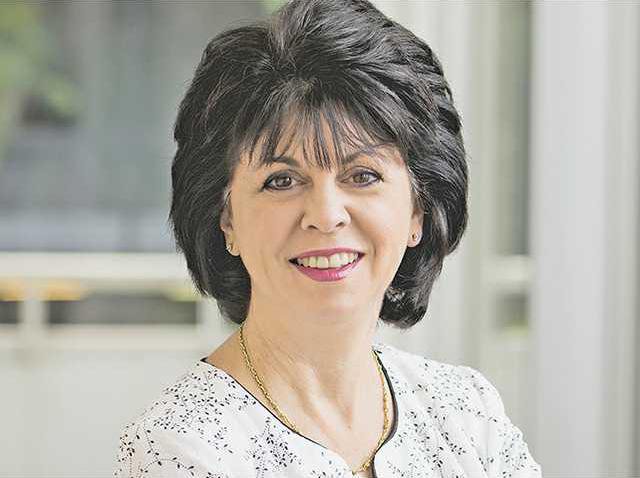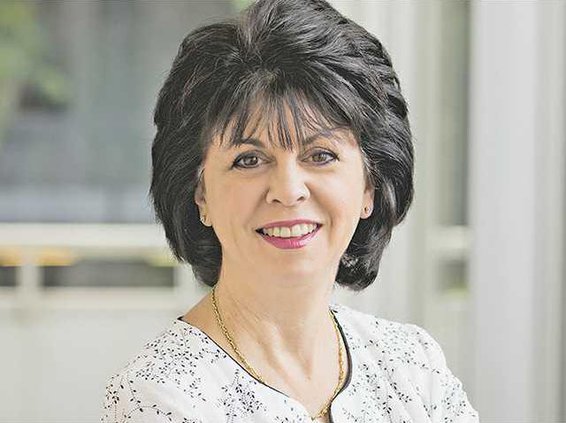Transportation has always been the driving force of a thriving economy. Here in Georgia, the same holds true. Transportation touches the lives of everyone every day, from people going to work and parents bringing their kids to soccer practice to farmers getting their crops to market and visitors traveling here to experience this wonderful state.
As a board member, and now as the newly elected chair of the State Transportation Board, I represent the 9th Congressional District in Northeast Georgia — home to the nicest people in the world, by the way. As board chair, my role, in partnership with my 13 colleagues on the board, is to help to move transportation ahead to benefit all Georgians — whether they live in a rural, mountainous area like mine, or in a densely populated urban region, an agricultural locale, on the coast or someplace in between.
The STB oversees the policies and objectives of the Georgia Department of Transportation. I also see us as a go-between for the department, citizens and elected officials. Under my chairmanship, the board will continue to expand its conversation with citizens, listen to and act on their concerns and build consensus and buy-in. People want to be heard, and we provide them with that opportunity.
Although the GDOT is recognized as a leader in transportation innovation, Georgia has been historically ranked as one of the states with the lowest in per-capita transportation spending because of a lack of funds.
However, exciting times are ahead for transportation in Georgia.
Passage of the historic Transportation Funding Act of 2015 will enable the GDOT to improve the state’s transportation infrastructure. It will allow us to take care of a backlog of basic maintenance needs on our state highways and bridges, as well as on local and county roads and city streets. The department will start to receive funds resulting from TFA in July, and we are planning now so that basic maintenance and critical infrastructure projects can quickly advance as the money comes in.
Georgia has moved ahead with significant projects to increase safety, improve lives, drive commerce, bolster economic competitiveness, create jobs and enhance communities. Express-lane construction continues on the Northwest Corridor and Interstate 75 South Metro, while construction should begin in the spring for the Interstate 85 extension. The Transportation Investment Act program in the three Middle Georgia TIA regions will wrap up Band 1 projects and ramp up for Band 2 in early 2016. The Interstate 285 and Highway 400 interchange reconstruction, the state’s highest-priority infrastructure improvement project, is in the procurement phase. And the deepening of the Port of Savannah is in full swing.
The coming year will also mark the GDOT’s centennial. We’ve come a long way since the dirt roads of 1916!
You know the adage about how everyone complains about the weather, but nobody does anything about it? I’ve heard it said about transportation as well. But in Georgia, that’s simply not true. Georgians can make, and are making, a real difference when it comes to transportation planning. I count it a privilege to be part of a process in which citizens attend a public information open house and provide feedback that is essential for project development, where they can make suggestions or ask questions or voice concerns. Where there is a conversation. Georgians want transparency in their transportation process. The board and the entire staff at the GDOT are committed to nothing less.
I would be remiss if I did not mention the need for a long-term federal transportation bill. The latest short-term patch — the 35th since 2009 — extended federal transportation-aid payments through this week. The State Transportation Board urges Congress to pass a long-term transportation bill to create the certainty state DOTs need in order to plan major transportation projects.
Prior to serving on the STB, I served 10 years on the Fannin County Board of Education, including four years as chairwoman. I relished that role and learned much about leadership. As a small-business owner, I’ve also learned that the strength and value of a group is in its diversity.
When we focus on our goals and bring our backgrounds, knowledge and life experiences together, we can make really good things happen for all of Georgia.
New GDOT board chair introduces herself


Sign up for our e-newsletters